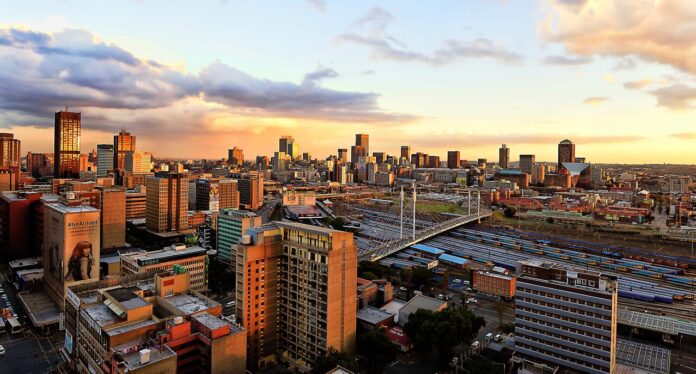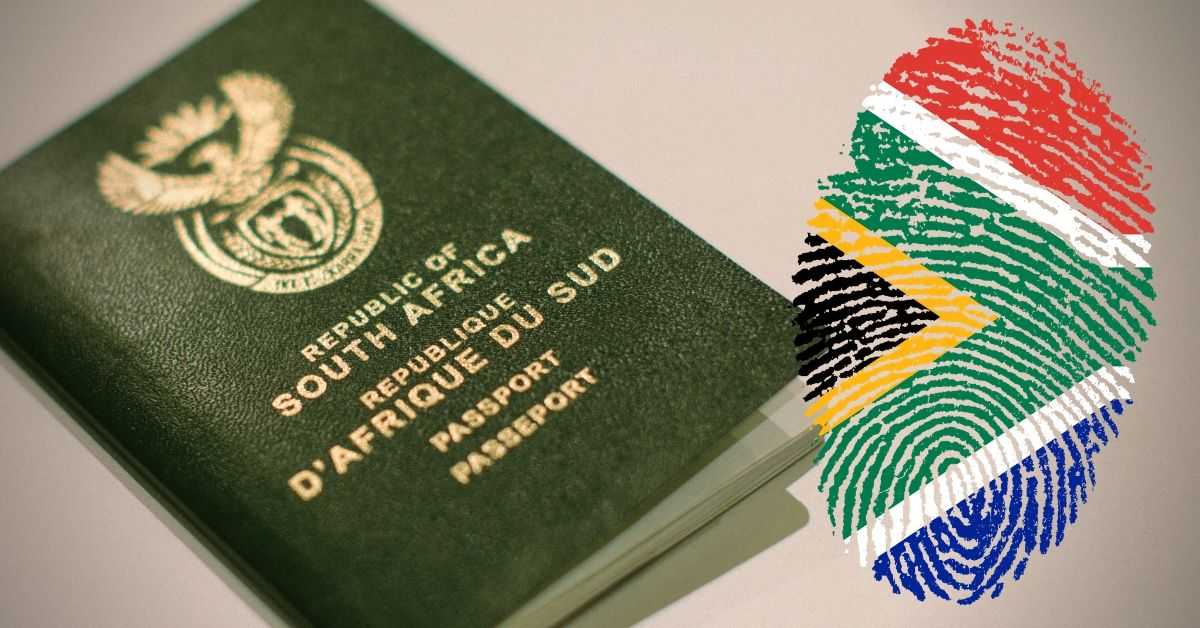South Africa: A Diverse and Dynamic Nation
South Africa a subtle location for businesses, fondly called the “Rainbow Nation,” is celebrated for its cultural richness, breathtaking landscapes, and abundant natural resources. Situated at the southernmost tip of the African continent, it serves as a vital gateway to emerging markets across the region. With a diverse economy that blends advanced industries and developing sectors, South Africa remains a prominent economic force in Africa despite its challenges.
Living Standards in South Africa
South Africa offers a mix of modern amenities and developing infrastructure, with living standards varying between urban and rural regions:
- Housing Options
- Urban hubs like Johannesburg, Cape Town, and Durban feature a wide range of housing, from affordable apartments to luxurious estates.
- However, economic disparities are evident in informal settlements that lack essential amenities.
- Healthcare Systems
- South Africa has both public and private healthcare systems. Private facilities provide high-quality care, while public healthcare, though accessible, is often under-resourced, leading to unequal access.
- Educational Opportunities
- Education is compulsory for children aged 7 to 15. Public schools are prevalent, but many families opt for private institutions offering superior education. Universities like the University of Cape Town and Stellenbosch University rank among Africa’s finest.
- Employment Prospects
- Despite high unemployment rates, sectors like mining, agriculture, finance, and tourism provide opportunities for skilled professionals and entrepreneurs.
Individual Taxation in South Africa
South Africa’s progressive tax system ensures higher earners contribute more, with deductions and exemptions available to ease the burden:
- Income Tax Rates
- Individuals earning below ZAR 95,750 annually are exempt.
- Income between ZAR 95,751 and ZAR 237,100 is taxed at 18%, with incremental rates applied to higher brackets.
- The highest tax rate of 45% applies to earnings exceeding ZAR 1,817,000 annually.
- Unemployment Insurance Fund (UIF)
- Both employees and employers contribute 1% of the employee’s salary to the UIF, which provides financial support during unemployment.
- Residency-Based Taxation
- Tax residents are taxed on their global income, while non-residents pay taxes solely on South African earnings.
- Allowable Deductions
- Deductions are available for retirement fund contributions, medical expenses, and select investment-related costs.
Corporate Taxation Framework
South Africa’s corporate tax structure supports business growth while ensuring robust revenue collection:
- Corporate Income Tax (CIT)
- The standard CIT rate is 27% for tax years ending after March 31, 2023, reduced from the previous 28%.
- Value-Added Tax (VAT)
- A 15% VAT is applied to most goods and services, though essentials like basic food items and public transport are zero-rated or exempt.
- Tax for Small Businesses
- Small enterprises enjoy reduced tax rates on lower income thresholds, fostering growth among emerging businesses.
- Dividend Taxation
- A 20% withholding tax is levied on dividends distributed to shareholders.
- Investment Incentives
- Incentives include tax breaks for renewable energy projects, R&D initiatives, and employment creation schemes.
Key Economic Sectors Driving Growth
South Africa’s economy is bolstered by diverse industries, many of which are globally competitive:
- Mining and Natural Resources
- Rich in minerals such as gold, platinum, and diamonds, South Africa’s mining sector is a cornerstone of its economy, contributing significantly to exports and employment.
- Agriculture and Food Processing
- With fertile land and favorable weather, South Africa excels in producing wine, citrus fruits, grains, and livestock, positioning itself as a leading food exporter.
- Tourism Industry
- Attracting millions of visitors annually, South Africa’s iconic destinations like Cape Town, the Kruger National Park, and the Garden Route drive the tourism sector. Ecotourism and adventure tourism are emerging as key niches.
- Manufacturing and Automotive
- The country’s manufacturing base includes automotive production, chemicals, and textiles. Brands like BMW and Volkswagen have made South Africa a regional hub for vehicle manufacturing.
- Energy Development
- South Africa is investing heavily in renewable energy, particularly solar and wind power while maintaining its role as a leading coal producer.
- Financial Services
- With a robust banking system and the Johannesburg Stock Exchange (JSE), South Africa’s financial sector is one of the most advanced in Africa.
- Technology and Innovation
- Emerging as a tech hub, South Africa hosts initiatives like Cape Town’s “Silicon Cape,” which promotes fintech, e-commerce, and digital solutions.
Living Costs and Inflation
Inflation in South Africa typically fluctuates between 4% and 6%, though global economic conditions can cause occasional spikes:
- Housing Costs
- Monthly rent for a one-bedroom apartment in Johannesburg or Cape Town ranges from ZAR 6,000 to ZAR 12,000. Housing in rural areas is more affordable.
- Food and Grocery Prices
- Locally sourced produce is inexpensive, while imported goods carry higher price tags due to tariffs and logistics.
- Utility Expenses
- Monthly utility bills, including electricity, water, and sanitation, average between ZAR 1,500 and ZAR 3,000, depending on household size.
- Transportation Options
- Minibusses and public transport are cost-effective, but limited infrastructure in some regions makes private vehicle ownership more common.
- Healthcare and Education
- While public services are accessible, many residents prefer private healthcare and schooling, which come at a premium.
Taxes on Property and Sales
South Africa’s tax system supports local development and public services through various levies:
- Municipal Property Rates
- Property taxes are based on the market value of the property, funding waste management, and infrastructure in local communities.
- VAT on Goods and Services
- A 15% VAT applies to most goods, with exemptions for basic food items, public transportation, and educational services.
- Excise Duties
- Levied on alcohol, tobacco, and fuel, excise taxes regulate consumption and contribute to public revenue.
- Capital Gains Tax (CGT)
- Asset disposals are subject to CGT, with rates up to 18% for individuals and 22.4% for companies.

Types of Business Entities in South Africa
Entrepreneurs looking to establish a business in South Africa can choose from various entity types, each suited to different needs and objectives:
- Sole Proprietorship
- A simple structure ideal for small businesses, with the owner personally liable for all debts and obligations.
- Private Company (Pty Ltd)
- The most common choice for medium to large enterprises requires at least one director and shareholder.
- Liability is limited to the capital invested by shareholders.
- Public Company
- Designed for businesses aiming to raise capital through public share offerings.
- Subject to stricter regulatory and disclosure requirements.
- Partnership
- Involves two or more individuals or entities sharing ownership and profits, with joint liability for debts.
- Branch Office
- Enables foreign companies to operate in South Africa without establishing a separate legal entity.
- Non-Profit Company (NPC)
- Tailored for charitable organizations and NGOs, focusing on public benefit rather than profit.
Licenses Required to Start a Business in South Africa
Launching a business in South Africa involves obtaining specific permits and approvals to ensure compliance:
- Company Registration
- All businesses must register with the Companies and Intellectual Property Commission (CIPC).
- Tax Registration
- Businesses must register for an income tax number with the South African Revenue Service (SARS).
- VAT registration is mandatory for businesses with an annual turnover exceeding ZAR 1 million.
- Industry-Specific Permits
- Certain sectors, such as healthcare, mining, and food services, require additional licenses from relevant authorities.
- Broad-Based Black Economic Empowerment (BEE) Compliance
- Businesses must adhere to BEE regulations, promoting economic inclusion and transformation.
- Municipal Permits
- Local licenses may be necessary for operations within specific jurisdictions.
Opportunities for Expats to Grow Businesses in South Africa
South Africa’s diverse economy and strategic position provide ample opportunities for expats to invest and grow their businesses:
- Renewable Energy
- Expats can invest in solar, wind, and bioenergy projects, aligning with South Africa’s sustainability goals.
- Technology and Digital Innovation
- Urban centers like Cape Town offer opportunities in fintech, e-commerce, and digital transformation.
- Tourism and Hospitality
- With globally renowned destinations, opportunities abound in eco-tourism, luxury hospitality, and travel services.
- Agriculture and Agri-Tech
- Innovations in farming, food processing, and sustainability are highly sought after.
- Real Estate Development
- Urbanization and housing shortages create demand for residential and commercial property projects.
- Education and Training
- Vocational training, IT education, and language instruction are growing fields for expat entrepreneurs.
Pathways to Citizenship for Expats in South Africa
Expats aiming to settle in South Africa can explore several routes to citizenship:
- Permanent Residency
- Expats may apply after five years of continuous residence on a valid visa.
- Investors, skilled workers, and spouses of South African citizens may qualify for expedited processing.
- Naturalization
- Applicants must hold permanent residency for at least five years before applying for citizenship.
- Investment-Based Residency
- High-net-worth individuals can secure residency by making significant investments in South Africa’s economy.
- Dual Citizenship
- South Africa permits dual citizenship, provided prior approval is obtained before acquiring another nationality.
Why Register a Company in South Africa?
- Strategic Positioning
- South Africa’s location at Africa’s southern tip offers access to emerging markets across the continent, the Middle East, and beyond.
- Economic Diversity
- With industries spanning mining, agriculture, technology, and finance, South Africa provides a broad spectrum of opportunities.
- Trade Benefits
- As a member of the African Continental Free Trade Area (AfCFTA) and the Southern African Development Community (SADC), South Africa offers access to regional and global markets.
- Government Support
- Incentives in renewable energy, technology, and manufacturing, coupled with benefits in Special Economic Zones (SEZs), make South Africa attractive for investment.
- Advanced Financial Systems
- South Africa’s robust banking infrastructure and the Johannesburg Stock Exchange (JSE) facilitate business growth and financing.
Steps to Register a Company in South Africa
The company registration process in South Africa is efficient, supported by the CIP C’s digital platform:
- Select a Business Structure
- Choose from options such as Private Company (Pty Ltd), Public Company, Sole Proprietorship, or Non-Profit Company (NPC).
- Reserve a Business Name
- Use the CIPC’s online tool to check the availability of your desired name and reserve it.
- Prepare Necessary Documentation
- Include identity documents for directors and shareholders, along with a Memorandum of Incorporation (MOI) detailing governance policies.
- Register with the CIPC
- Submit all documents online to obtain a company registration number and certificate of incorporation.
- Tax Registration
- Register for an income tax number with SARS and, if applicable, for VAT.
- Open a Business Bank Account
- Establish a corporate account to manage finances and meet compliance requirements.
- Obtain Industry-Specific Licenses
- Apply for additional permits based on the business sector, such as health certifications or mining licenses.
Cost of Registering a Business in South Africa
Setting up a business in South Africa is cost-effective, with expenses varying based on the business type:
- Registration Fees
- Name reservation costs approximately ZAR 50, while company registration ranges from ZAR 125 to ZAR 475, depending on the structure.
- Professional Services
- Legal consultants or advisors may charge ZAR 2,000 to ZAR 5,000 for assistance with the registration process.
- Sector-Specific Permits
- Licensing fees range from ZAR 500 to ZAR 10,000, depending on the industry.
- Tax Compliance Costs
- VAT registration is free, but hiring accountants or consultants for compliance can add to operational expenses.
- Banking Fees
- Setting up a corporate account typically incurs nominal fees under ZAR 1,000.
Overall, the total cost of establishing a small to medium enterprise in South Africa is estimated at ZAR 5,000 to ZAR 15,000, excluding ongoing operational expenses.
South Africa’s vibrant economy, strategic location, and supportive business environment make it an excellent choice for entrepreneurs and investors looking to establish or expand their ventures.
South Africa’s International Relations and Their Business Impact
South Africa’s foreign relations bolster its business environment and open avenues for international trade and investment:
- Regional Trade Collaborations
- As a member of the Southern African Customs Union (SACU) and the Southern African Development Community (SADC), South Africa benefits from tariff-free trade with neighboring countries, facilitating smoother business operations within the region.
- Global Market Access
- South Africa’s active participation in the African Continental Free Trade Area (AfCFTA) connects businesses to a market of over 1.2 billion people across Africa, enhancing trade and investment opportunities.
- Bilateral Alliances
- Strong trade relationships with key nations like China, the United States, and Germany have encouraged investments in technology, renewable energy, and infrastructure projects.
- Role in BRICS
- As a member of BRICS (Brazil, Russia, India, China, and South Africa), the nation wields significant influence in global trade and finance, benefiting from collaborative projects and economic partnerships.
- Proximity to the Suez Canal
- South Africa’s strategic location near the Suez Canal strengthens its position as a global logistics and shipping hub, making it an essential player in international trade.
Additional Tax Obligations in South Africa
Businesses in South Africa must adhere to various tax regulations beyond corporate income tax:
- Value-Added Tax (VAT)
- A standard VAT rate of 15% is levied on most goods and services, with exemptions for essentials like basic food items, educational services, and public transportation.
- Dividend Tax
- A 20% withholding tax applies to dividends distributed to shareholders, impacting profit allocation strategies.
- Customs Duties
- Imports are subject to varying customs duties based on the type of goods, encouraging local production and supporting domestic industries.
- Excise Duties
- Alcohol, tobacco, and fuel are subject to excise taxes, aimed at regulating consumption while generating government revenue.
- Capital Gains Tax (CGT)
- Businesses face an effective CGT rate of 22.4% on asset disposals, influencing investment and liquidation decisions.
- Municipal Property Rates
- Property owners pay annual rates based on the assessed value of their business properties, funding essential local services like waste management and infrastructure development.
Social Security Framework in South Africa
South Africa’s social security system is designed to support its citizens and residents by offering various financial and healthcare benefits:
- Pension and Social Grants
- The Old Age Pension provides financial assistance to eligible senior citizens, subject to income thresholds.
- Other grants, such as the Child Support Grant, Disability Grant, and Foster Child Grant, address different societal needs.
- Unemployment Insurance Fund (UIF)
- Both employees and employers contribute 1% of the employee’s monthly earnings to the UIF, which offers short-term financial relief for job loss, maternity leave, or illness.
- Healthcare Initiatives
- South Africa operates a dual healthcare system. Public facilities are accessible to all but often under-resourced, while private healthcare offers premium services.
- The National Health Insurance (NHI) initiative aims to improve access and equity in healthcare delivery across the country.
Climate, Weather, and Regional Safety
South Africa’s diverse geography gives rise to a variety of climates, making it a year-round destination for business and leisure:
- Seasonal Variations
- Summer (November to March): Warm and sunny, with temperatures between 20°C and 35°C. Rainfall is common in the eastern regions.
- Winter (May to August): Cool and dry, with temperatures ranging from 5°C to 20°C, providing pleasant conditions for outdoor activities.
- Coastal Areas: Cape Town enjoys a Mediterranean climate, while Durban benefits from a subtropical environment.
- Safety and Security
- South Africa faces challenges with urban crime; however, various measures are improving safety:
- Enhanced Law Enforcement: Police and community efforts target high-crime areas.
- Secure Living Options: Gated communities, residential complexes, and safe tourist zones ensure added protection for residents and visitors.
- Vigilance in Urban Centers: While areas like Johannesburg and Cape Town require caution, rural and tourist destinations are generally safe and welcoming.
- South Africa faces challenges with urban crime; however, various measures are improving safety:
Global Mobility of South Africa’s Passport
The South African passport offers moderate global travel freedom, with access to numerous destinations:
- Visa-Free and Visa-on-Arrival Countries
- South African citizens can visit over 100 countries without needing a visa or by obtaining one upon arrival. Popular destinations include Brazil, Singapore, Hong Kong, and several African nations.
- Visa Requirements for Western Nations
- Travel to the European Union, the United States, and Canada requires a visa, often involving a detailed application process. Efforts are ongoing to expand international mobility through bilateral agreements.
Education, Opportunities, and Lifestyle in South Africa
South Africa’s education system and economic environment offer avenues for personal growth, professional success, and a high quality of life:
- Education System
- Primary and Secondary Education: Public schooling is free from Grade R to Grade 9, while private and international schools provide superior facilities and advanced curricula, including the International Baccalaureate (IB).
- Higher Education: Renowned universities like the University of Cape Town, the University of the Witwatersrand, and Stellenbosch University attract students from across Africa and beyond. Vocational and technical colleges cater to industry-specific skills.
- Economic and Career Opportunities
- Expanding Sectors: Industries like mining, technology, renewable energy, and agriculture create ample opportunities for skilled professionals and entrepreneurs.
- Support for Entrepreneurs: Government initiatives, such as tax incentives and incubator programs, encourage startups, particularly in emerging industries like fintech and green energy.
- Lifestyle and Recreation
- Affordable Living Costs: While private education and healthcare can be costly, overall living expenses, including housing and food, remain manageable.
- Cultural Diversity: South Africa’s vibrant festivals, music, and art showcase its rich cultural heritage, offering enriching experiences.
- Recreational Activities: Residents and visitors can explore wildlife safaris, mountain hikes, and historic landmarks, ensuring a dynamic and fulfilling lifestyle.
South Africa’s robust international relations, supportive business environment, and diverse opportunities make it an appealing destination for entrepreneurs, expats, and investors alike. With its vibrant culture, economic diversity, and strategic location, the country continues to attract global attention as a hub for growth and innovation.






